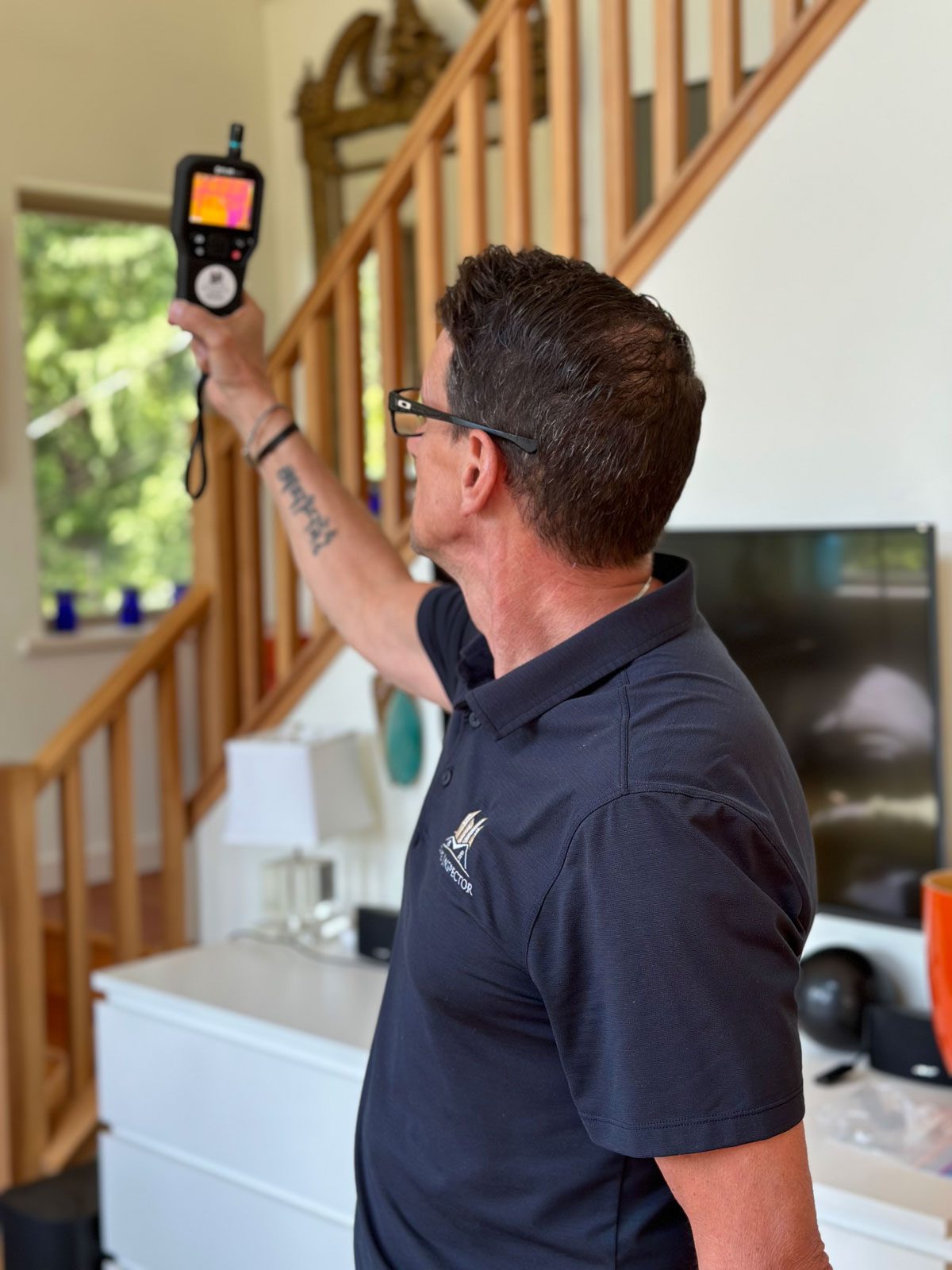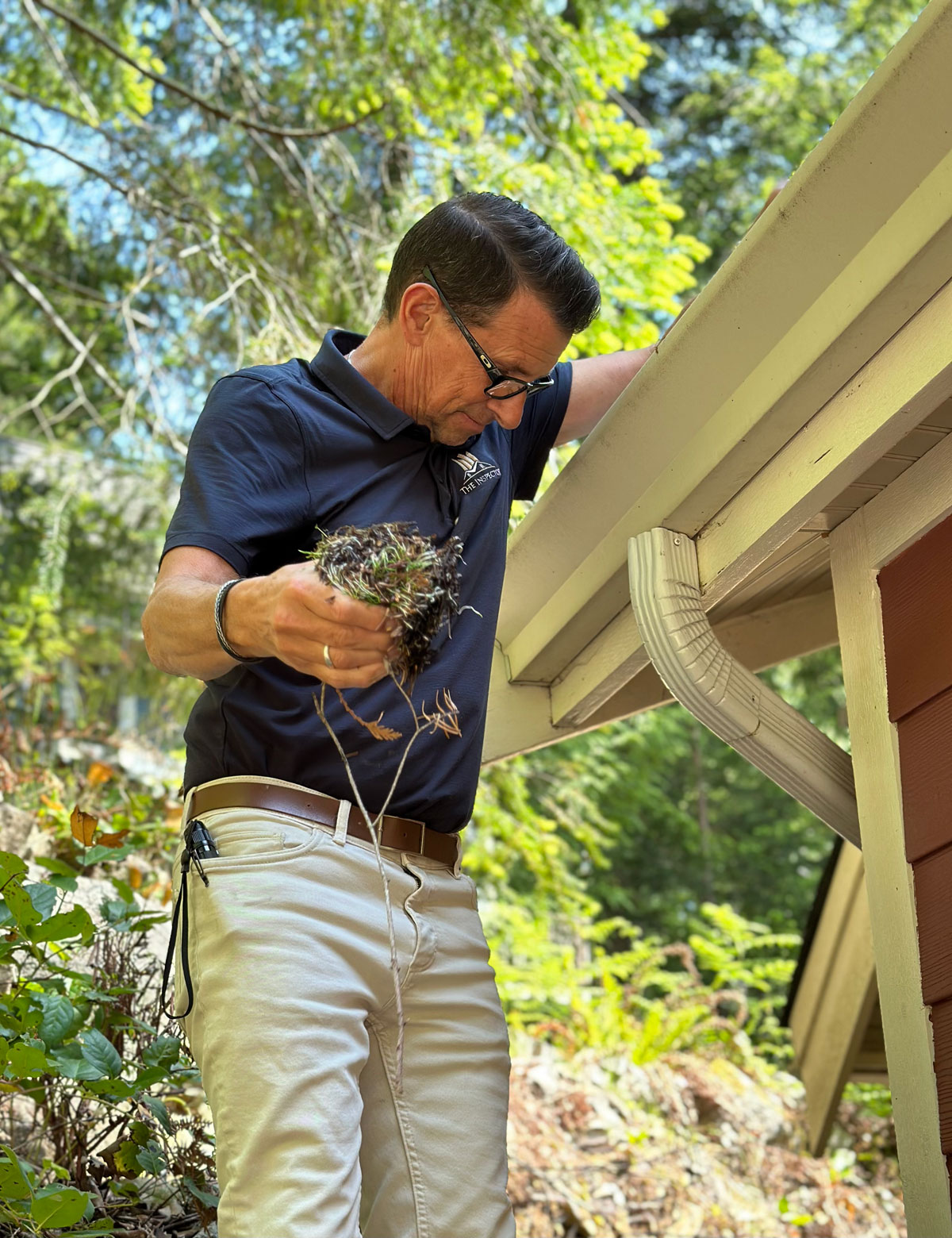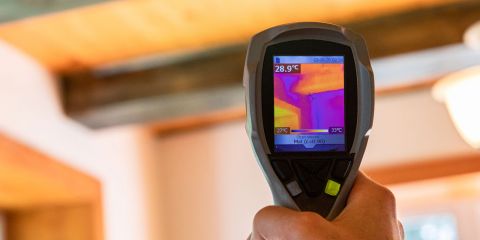What is a Visual Inspection?

A home inspector’s job is to visually inspect and assess the condition of the building and advise on anything dangerous; anything that could cause problems in the future and report on aspects of the building that will need future and potentially costly maintenance (the roof for example).
We provide paperless inspection reports that are very detailed, and include diagrams and photographs.
Included in Your Vancouver Home Inspection:
A Visual Inspection of the Home’s Interior, Including:
- electrical inspection
- heating inspection
- air conditioning inspection
- ventilation inspection
- plumbing inspection
- insulation inspection
- flooring inspection
- foundation inspection
- ceiling and walls inspection
- windows and doors inspection
A Visual Inspection of the Home's Exterior, Including:

- roof inspection
- flashing inspection
- chimney inspection
- gutters inspection
- downspouts inspection
- wall surfaces inspection
- windows and doors inspection
- the foundation inspection and the grading around it
- drones to inspect non-accessible areas
**Please see the CanNACHI Standards of Practice
The above-mentioned is included in your Vancouver condo, townhouse, and duplex purchase, you're not just buying the unit you're buying an interest in the entire property. All are subject to access granted.
Since a licensed home inspector cannot damage the home, the inspection is visual. Where possible an inspector may make use of devices such as moisture meters, spot thermometers, and thermal imaging cameras to help them in their work. Unless otherwise arranged, a typical inspection does not include appraisals, exact quotes for repairs, or determining compliance with regulatory requirements. A home inspection is not intended to provide warranties or guarantees.
A typical Vancouver home inspection will vary in the length of time it takes to complete, depending on the size and even the age of the building. Most inspectors will provide a written home inspection report, and do a walkthrough with you.
In the province of BC, a home inspector must be licensed. Reputable building and home inspectors generally belong to a provincial or regional industry association. NHICC which stands for National Home Inspector Certification Council is one such association. Its members must abide by a standard of practice and code of ethics as well as undertake ongoing education to help ensure the competency and professionalism of its home inspectors. As of September 1, 2016, all Home Inspectors must follow the guidelines laid out by Consumer Protection BC.
Consumer Protection BC Guidelines for Home Inspectors
Choosing a Vancouver Home Inspector
- Your home inspector should work for you alone and not have any ties to the seller or incentives from any other parties.
- Your Vancouver home inspector should have been in business long enough to gain experience and ideally have worked in one or more of the building trades.
- Ask for several references for their work. If possible, call the references to find out if they were happy with their inspection.
- Check with Consumer Protection Authority and their professional association such as NHICC and other community work associations to see if they are in good standing.
- Check their website for information and testimonials.
- Are they offering to do repair work on the home? I believe this is a conflict of interest and you should be wary.
- Don't let them "up sale" you for products or services, such as using a thermal imaging camera.
- Hire a specialized contractor to conduct work outside the scope of the visual inspection. i.e. a drain tile expert is more knowledgeable and experienced to determine the condition of your drain tiles and potential expenses than a home inspector. The expert does the service more frequently than a home inspector.
In the end, nothing will guarantee that you will have ‘smooth sailing’ when it comes to your home inspection. If you follow the above guidelines, however, you will go a long way toward ensuring that your choice of building or home inspector will be a good one and that they will deliver the information you need to make a wise purchase.
We take pride in not belonging to any “Vendor” program. These programs are offered in some real estate offices where the inspection company pays a fee to drop off goodies, cards, gifts… We feel better getting the referral by doing a great job, not delivering goodies to offices. We also take great pride in making donations to a variety of charities in the lower mainland.
The Home Inspection Walk-Through
Most home inspection companies will require that you to allow at least a half hour to an hour for the walk-through. At that time, the inspector should highlight the home’s features, identify any items which need to be addressed and answer any questions you may have regarding the home. Because of our construction, renovation, and trades background, The Inspector - Home Inspection Services is able to offer practical advice regarding repairs and maintenance.
As mentioned above, most home inspection companies will offer some kind of written or electronic home inspection report. Our report is in electronic format so you can easily forward it as an attachment to family and friends without the worry of emailing large files.
There are numerous home inspection companies in the Lower Mainland. The Inspector takes pride in providing a thorough and comprehensive home inspection with the most advanced inspection report available on the market.
Tools Used
During the course of a visual home inspection, a variety of tools are used to determine if systems are operational or deficient and where there may be moisture, etc...
We believe that if you have the tools in the toolbox then they should be used at no extra charge. Some inspection companies charge extra for certain tools such as a Thermal Imaging Camera, not The Inspector, we include this as part of every inspection.
